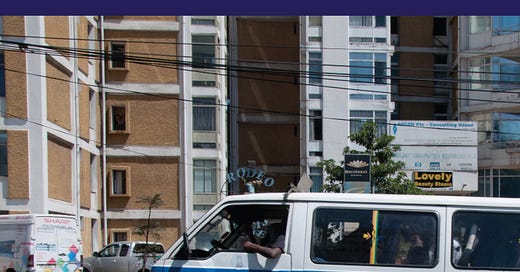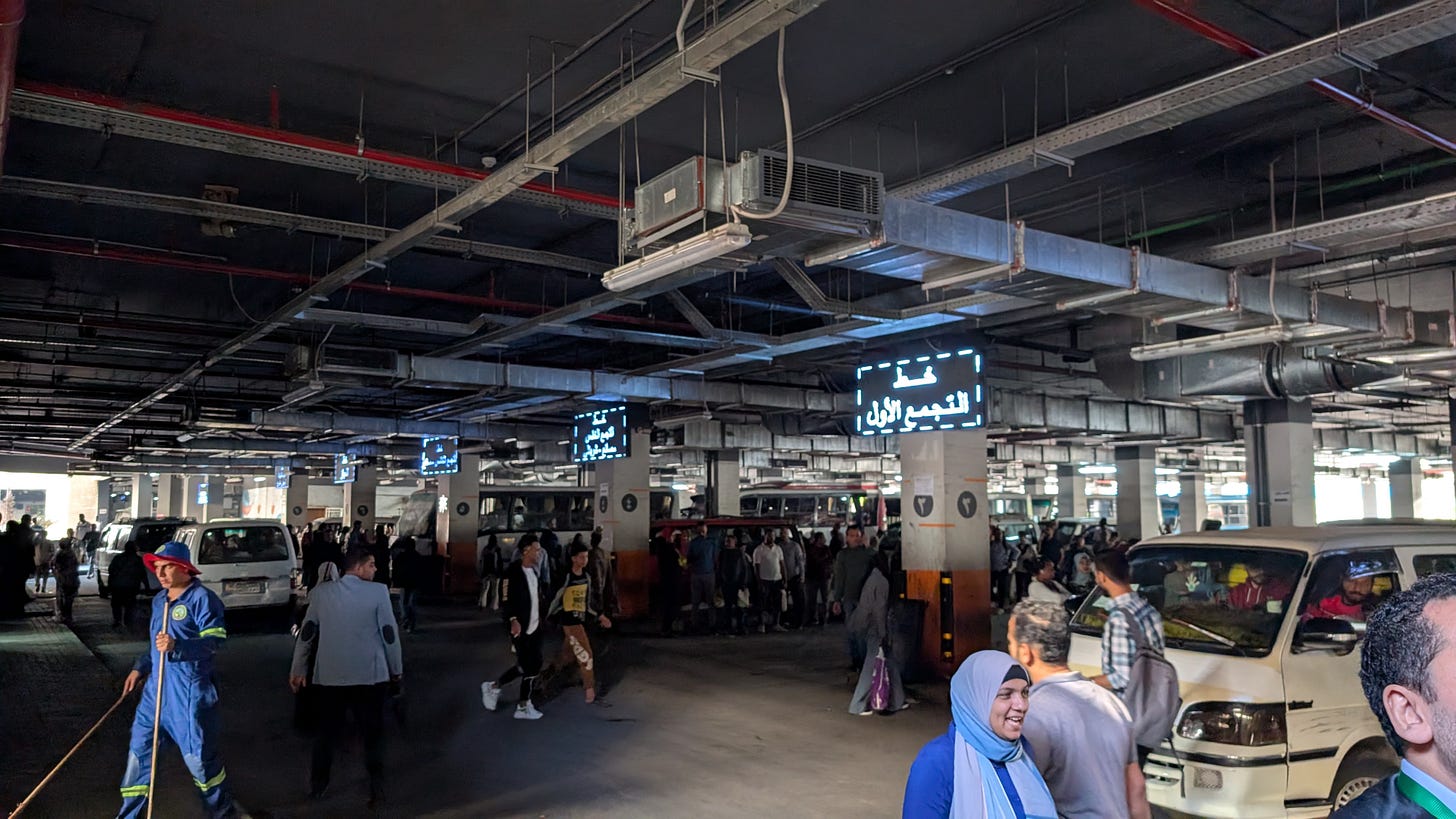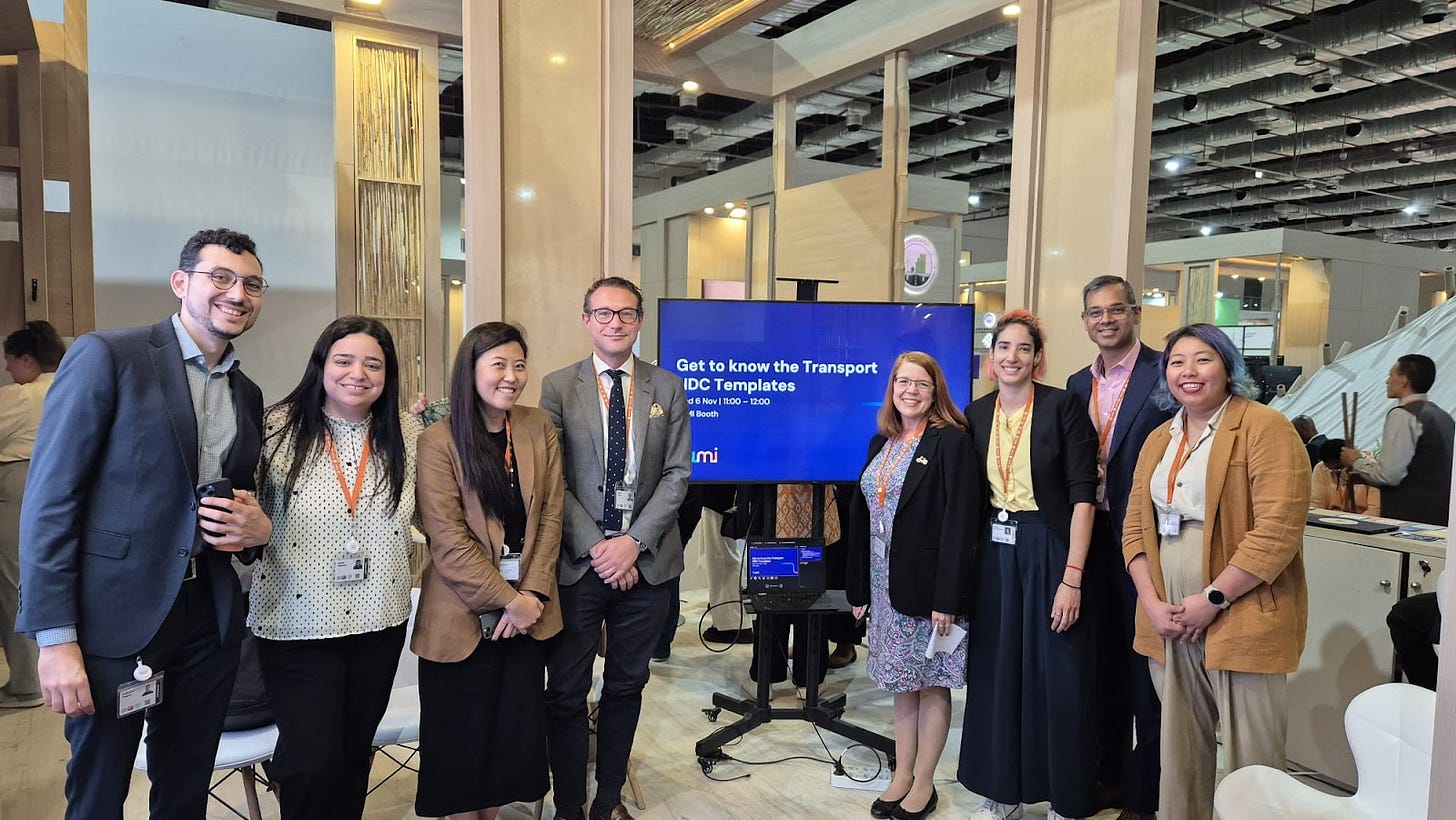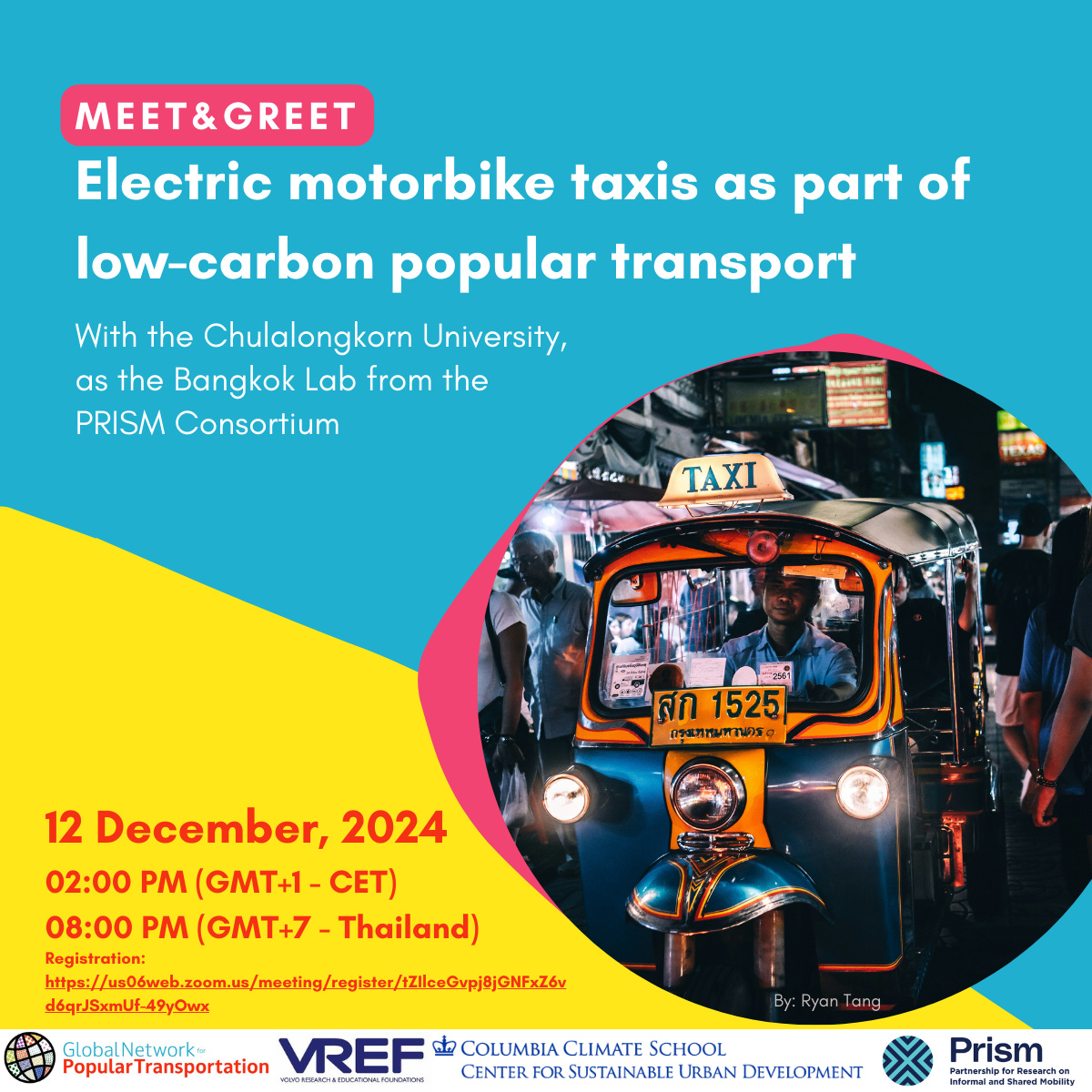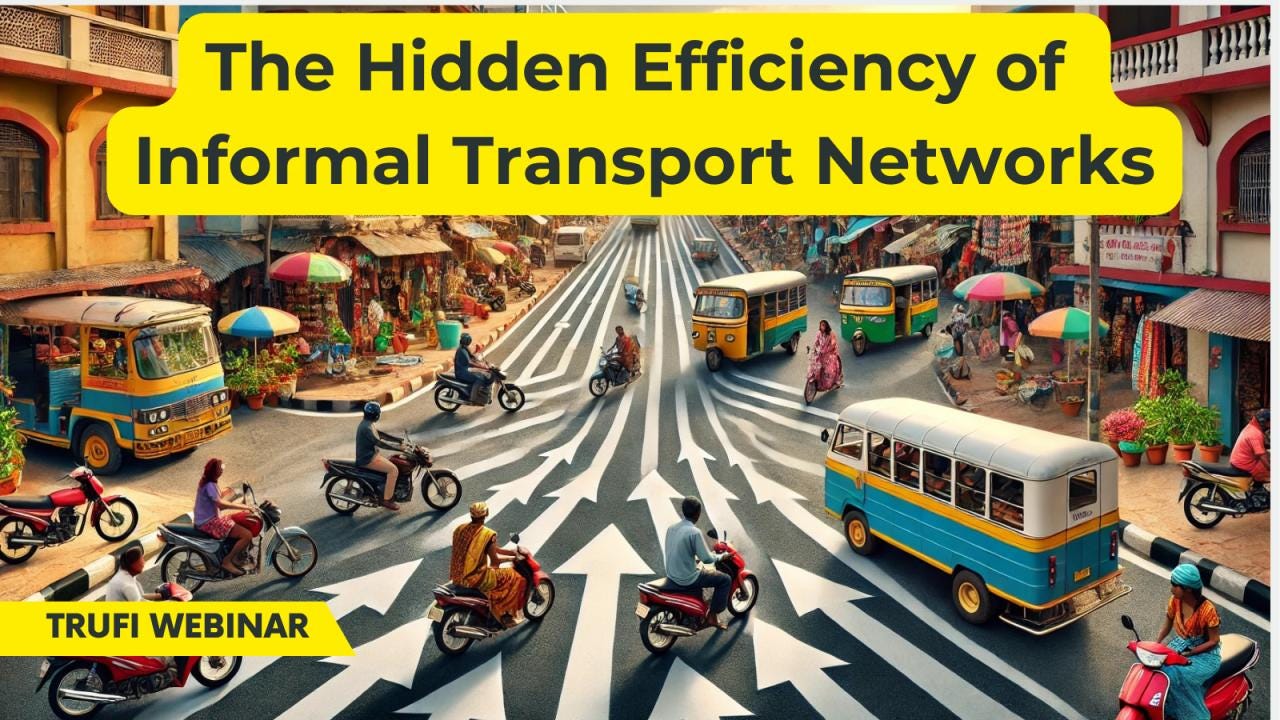Five and Three
Climate targets, motorcycle electrification and the hidden efficiency of pop transport
Hello, pop transport folks! We are happy to have you back in this new edition of events, updates, and tools for popular transport.
Let us get started with some big news:
The NDC Template for Popular Transport Coming Soon! 🌍
The Global Network for Popular Transport (GNPT), in collaboration with Transport for Cairo (TfC), has developed the world's first NDC template for popular transport, supported by the Transformative Urban Mobility Initiative (TUMI). This tool addresses a critical gap: despite 68% of motorized trips in cities across Africa, Asia, and Latin America relying on popular transport (GNPT calculation based on WRI, 2023), only two countries—Angola and Uganda—mention it in their Nationally Determined Contributions (NDCs).
Why does this matter?
Popular transport services are vital for mobility in low- and middle-income countries, yet they remain overlooked in global climate strategies. This template bridges the gap, complementing UITP’s NDC Template for Public Transport with tailored approaches for the unique characteristics of popular transport systems—such as their business models, regulatory frameworks, and working conditions.
Is the template for your country?
If popular transport modes form a significant share of motorized trips in your region, this template offers guidance for integrating the sector into climate action plans, securing national and international support for:
✅ Decarbonization
✅ Climate adaptation
✅ Resilient operations and business models
💡 Check out the draft template here and explore its recommended indicators and actions. We will let you know once the final document is out. Stay tuned!
📖 NDC Recommendations Featured at COP 29
The International Transport Forum (ITF) unveiled its NDC guide at the Transport Ministerial during COP 29. The report reveals that while 98% of NDCs mention transport, only 33% include specific emissions reduction targets for the sector. This underscores the urgent need for more ambitious NDCs, particularly with the third round of submissions approaching in February 2025. We’re thrilled to see our template featured alongside the UIC’s rail template, PATH’s active mobility template, and UITP’s public transport template.
Popular Transport in Cairo: UITP Working Group, World Urban Forum
In October and November, we attended the UITP Paratransit Transport Working Group and the World Urban Forum in Cairo. Here, we shared the NDC template and immersed ourselves in Egypt’s popular transport ecosystem.
UITP hosted an event focusing on the dialogue between manufacturers and authorities - crucial in the sector's technological transition. During our visit, we hosted a workshop with Transport for Cairo on the NDC Template. Participants explored strategies to include popular transport in NDCs, with activities ranging from reviewing the template to simulating proposals for their Ministries of Environment.
Also, we visited a bustling mini-bus station to understand the backbone of Egyptian urban transport.
Here’s what we learned:
Mini-buses are locally called Tomneya (8-seater)
Service (Servees) in Alexandria, and Mashrou—literally “project,” as many view investing in these vehicles as entrepreneurial opportunities.
Public investment in mini-buses could be a stepping stone to improving the system without necessitating full professionalization.
Case Study Spotlight: During our visit to Cairo, we also learned about the electrification of Safa Tempos in Kathmandu, shared by Shritu Shrestha from the Wuppertal Institute, showcased practical steps toward decarbonization.
At the World Urban Forum, we convened with PATH, UITP, and UIC, organizations that have developed various templates for Nationally Determined Contributions (NDC) related to transport (including UITP, PATH, GNPT/TfC, and UIC). A key outcome from our discussions was the recognition that we need to consolidate these different NDC templates and make them more user-friendly for national authorities to effectively utilize and implement. This is precisely why we are celebrating the ITF NDC Guide.
Electric Motorbike Taxis as Part of Low-Carbon Pop Transport
Two- and three-wheelers account for up to 20% of fuel used in non-OECD countries. Join us on December 12th with the Chulalongkorn University, from PRISM Columbia University, to learn what role 2-wheelers play in decarbonizing the transportation sector in Thailand.
Register here: https://lnkd.in/erk2wznx
Interested in more? https://lnkd.in/e95fjySD
Webinar: The Hidden Efficiency of Informal Transport Networks
We are excited to share Trufi's webinar focusing on the efficiency of self-organization in the popular transportation sector. Are you interested in discovering how systems that seem chaotic are indeed efficient? Register now!
MobiliseYourCity’s Paratransit Decarbonization Working Group
MobiliseYourCity hosted the first decarbonization meeting of the Paratransit Working Group last week.
Key takeaways:
A consensus on the need for a Community of Practice (CoP) focused on data collection, GHG emissions modeling, and financing reforms.
Decarbonization ≠ electrification alone. Broader strategies are needed to address the complexities of popular transport systems.
Delhi Deep Dive - Changing the Narrative around 2- and 3-Wheelers
Last but not least, ten journalists will join us and Uber to New Delhi in January 2024 to experience and get data and technical data on pop transport. Interested in seeing what they learn? Stay tuned!
That is it for this month! As always, send us information about happenings, new data, and cool insights to info.gnpt@sharedusemobilitycenter.org.
Take care!
Interested in more? If you haven’t done so, join our LinkedIn Group and join the conversation! Also, let us know about events or updates in our sector.
Thank you!
Pop Transport is the newsletter of the Global Network for Popular Transportation, a global network of researchers, consultants, advocates, companies, agencies, and institutions committed to changing how the world sees popular transportation.
The Global Network for Popular Transportation is a project of the Shared-Use Mobility Center, initiated by Agile City Partners.
The Global Network for Popular Transportation works to ensure that:
Cities, countries, international development agencies, and banks recognize popular transportation as a valid, essential, and important service.
All popular transportation modes are integrated into urban, transport, social, economic, and climate policy and planning efforts.
The key sectors in popular transportation are recognized and participate as equal partners in co-creating accessible, equitable, and sustainable cities. These sectors include workers, entrepreneurs, micro-, small-, and medium enterprises, and small-scale investors.
The world takes an asset-based framework to understanding popular transportation, moving away from simplistic and ineffective approaches focused solely on transportation efficiency to an approach that prioritizes valuing the environment, advancing equity, and empowering people and communities

